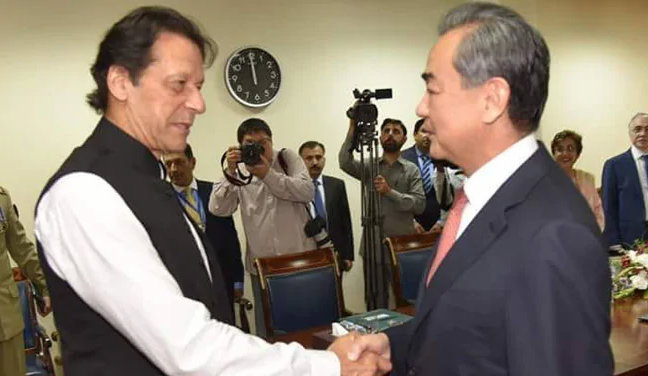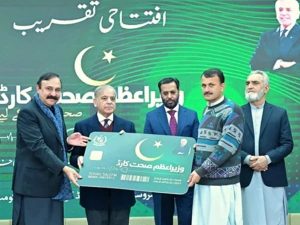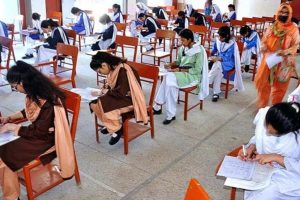ISLAMABAD – Prime Minister Imran Khan is set to visit China next week to discuss investment and the strategic partnership with the Chinese leadership following the ‘misunderstandings’ on the China Pakistan Economic Corridor (CPEC).
The highlight of Imran’s China visit is going to be his keynote address at the Shanghai International Expo on November 5. Not only is the relief expected in the shape of easy loans, but also a number of multi-billion dollars agreements in energy, infrastructure, real estate, industry and other sectors will likely be announced during the premier’s visit.
Since Imran Khan assumed the office on August 18th, there has been a perception that the new government might be rethinking the China-Pakistan relationship to a larger degree than expected while trying to strengthen that all-important partnership.
It all started with Abdul Razak Dawood, Advisor to the Prime Minister on Commerce, Textile, Industry and Production, and Investment, saying that “the previous government did a bad job negotiating with China on CPEC — they didn’t do their homework correctly and didn’t negotiate correctly so they gave away a lot”.
“Chinese companies received tax breaks, and have an undue advantage in Pakistan; this is one of the things we’re looking at because it’s not fair that Pakistan companies should be disadvantaged.”
However, Dawood later said his words were taken ‘out of context’ and the PTI government did its best to downplay the reports of CPEC review.
Under the previous (PML-N) government there was an emphasis on infrastructure schemes, but the incumbent government reportedly wanted projects involving agriculture, job creation and foreign investment [to] take center stage.
The Prime Minister’s Office had already decided on such a shift in early October. “Earlier, the CPEC was only aimed at construction of motorways and highways, but now the prime minister decided that it will be used to support the agriculture sector, create more jobs and attract other foreign countries like Saudi Arabia to invest in the country,” Information Minister Fawad Chaudhry told Dawn on October 9.
CPEC is a huge economic opportunity, a game changer for Pakistan and under its projects, so far 80,000 jobs have been generated and by the end of 2030, some 700,000 more jobs will be created.
Apart from CPEC deals, the new government also reportedly conveyed that Pakistan wants to renegotiate the terms of the Free Trade Agreement (FTA) ahead of Khan’s visit to China. Phase II of the FTA has been under deliberation for the past six years, with Islamabad conveying to Beijing that it wants an increase in the share of exports.
But why all the fuss when all this was already agreed during the previous caretaker setup?
Official minutes of the 8th August meeting between Pakistani and Chinese officials, a copy of which is available with Daily Pakistan, show that not only the premier’s visit was planned during the previous caretaker government but both the sides also agreed on identifying new areas of cooperation and support to Pakistani government through trade promotion, Foreign Direct Investment (FDI), and cooperation in the social sector.

Days before Imran Khan took oath as the new PM, Chinese ambassador to Pakistan Yao Jing had called on former caretaker Minister for Commerce Mian Misbah-ur-Rehman to discuss issues of bilateral trade and economic cooperation between the two Asian neighbours. In the meeting, the top Chinese envoy said his country had also been considering to announcing unilateral trade concessions to Pakistan in order to increase its exports to China and reduce trade deficit.
With regard to Foreign Direct Investment (FDI), Mr. Jing had said that Chinese Government would undertake measures to promote joint venture and investment in SEZs – suggesting that the Shanghai Import Fair would be a good opportunity for Pakistan to show cases its investment potential.
He even offered Pakistan to start bilateral trade in Renminbi (Yuan) to address the issue of widening trade deficit for which meetings with the State Bank of Pakistan (SBP) have already been held.
Regarding social sector cooperation, the ambassador had stated that regional governments of the Xinjiang province and Gilgit Baltistan were working together to improve infrastructure facilities at border posts to address customs and quarantine related issues and facilitate trade between the two regions.
And, just last week, the same Chinese envoy also indicated a feeling of enthusiasm and keenness on the part of the Chinese leadership and the people to listen to Imran Khan during his China visit and learn about his reforms package.
“The recent reforms in various socio-economic sectors of Naya Pakistan or New Pakistan and the positive changes in administrative and governance matters are something we want to hear from Prime Minister Imran Khan,” said Ambassador Yao Jing.
Speaking at a news conference in Islamabad, the ambassador clarified that China’s loan was not any burden on the Pakistan’s economy. “China’s debt to Pakistan is 6.3 per cent of Pakistan’s total debt. Pakistan only has to pay 2 per cent interest. Pakistan has 15 to 20 years to repay the loan. From 2020 to 2021, Pakistan has to pay between $300 million and $400 million (per year),” he said.
He rejected the notion that the China-Pakistan Economic Corridor was a burden on the Pakistani economy.
“CPEC is in fact beneficial to Pakistan, China and the whole region. This will boost Pakistan’s economy,” he added. He also dismissed the impression that only the Chinese companies were benefiting from CPEC. “This is beneficial for all,” he insisted.
In order to make PM Imran’s tour more meaningful, a delegation led by Ning Jizhe, the vice-chairman of National Development and Reforms Commission (NDRC) of China has already visited Pakistan.

At the four-hour meeting between the Planning, Development and Reforms Commission of Pakistan and the NDRC on Sept. 10, both sides agreed to formally invite “third-country” investors to be part of the $60 billion China-Pakistan Economic Corridor and add social sector and regional development schemes to the existing portfolio of CPEC projects.
Now prior to PM Imran’s visit to China, official sources say Islamabad is going to give a guarantee to Beijing that the ongoing infrastructure and energy projects under the China-Pakistan Economic Corridor (CPEC) would continue, and Islamabad would ensure its smooth and timely completion.
In return the government would expect a support package from the Chinese side similar to that extended by Saudi Arabia.
Let us all see how PM Khan will be able to remove the ‘misunderstandings’ on the CPEC while wooing investors from all over the world taking part in the first China International Import Expo.














